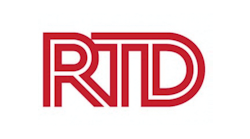RTD Board Committee Advances Fare Policy Changes for 2019
At its financial administration and audit committee meeting, the Regional Transportation District’s Board of Directors approved changes to fares and pass programs that would take effect starting early next year. For these changes to be adopted, they must be approved at next week’s full board meeting, on Tuesday, Sept. 18.
The extensive, comprehensive review of the agency’s fares and passes carried out over the last 18 months began at the request of RTD’s 15-member board, which authorized the examination in 2015 in response to public requests during the prior fare review. The recommendation before the board takes into account feedback from thousands of people about the three proposed options and the fare review process, scheduled to take place every three years. Public comments were gathered through a variety of means, including eight open house public meetings across the district, a telephone town hall meeting involving thousands of calls, the RTD webpage, meetings with agency advisory committees and Neighborhood EcoPass coordinators, and a districtwide telephone survey. More details about the fare review process, including RTD’s budget and expenses, are on the RTD website.
The board’s preliminary approval today was heavily informed by the efforts of a yearlong pass program working group, whose 25 members included representatives of schools, businesses, municipalities, neighborhood groups, advocacy organizations and RTD staff. The group was formed at the request of the RTD board and asked to determine whether changes should be made to the agency’s pass programs, ultimately addressing the question of whether RTD is offering the public the passes they want and need and pricing them appropriately. The working group formulated several options, all of which were carefully modeled by a consultant for their impact on total fare revenue and ridership. Its consensus recommendation has been reviewed by agency staff before being considered for approval by the board. More information about the pass program study is at rtd-denver.com.
“I am proud of the profound public engagement and diligence by RTD’s staff that have brought us to this point in the fare review process,” said CEO and General Manager Dave Genova. “The board’s foresight in asking for this comprehensive work speaks to the positive relationship its members have with the public they serve.”
“Each board member heard from our constituents, and we have listened to them,” said Board Chair Doug Tisdale. “The discussions that have ensued around this process have affirmed the responsibility we carry and the effects our deliberations have on people’s daily lives. We thank everyone who took time to communicate and to collaborate as to how we should proceed, and I thank the board for their efforts and cooperation in this important process."
If the recommendation is approved at next week’s board meeting, the following changes would be made to fares and passes:
- Introduce a low-income fare program, which would provide a 40 percent discount to households at or below 185 percent of the federal poverty level.
- Increase Local fare to $3, Regional fare to $5.25 and fare to Denver International Airport to $10.50.
- Increase the discount offered to riders between 6 and 19 years old to 70 percent. (Up to three children 5 and younger would ride free with a fare-paying adult.)
- Continue offering EcoPass, Neighborhood EcoPass and CollegePass, which will be priced based upon trips taken.
- Introduce a 3-hour pass, which would replace a 3-hour one-way transfer.
- Retain 10-Ride ticket books and MyRide smart cards with discounts.
- Retain day and monthly passes and FlexPass.
- Discontinue ValuPass (those interested instead could purchase 12 monthly passes).
The aforementioned fare policy changes are forecasted to reach fare revenue target levels over the next three years. Changes would be implemented starting in January, and a low-income program is estimated to begin in July. A Title VI equity analysis of the changes has been completed, and no concerns were found per the board-adopted Disparate Impact and Disproportionate Burden Policy.
